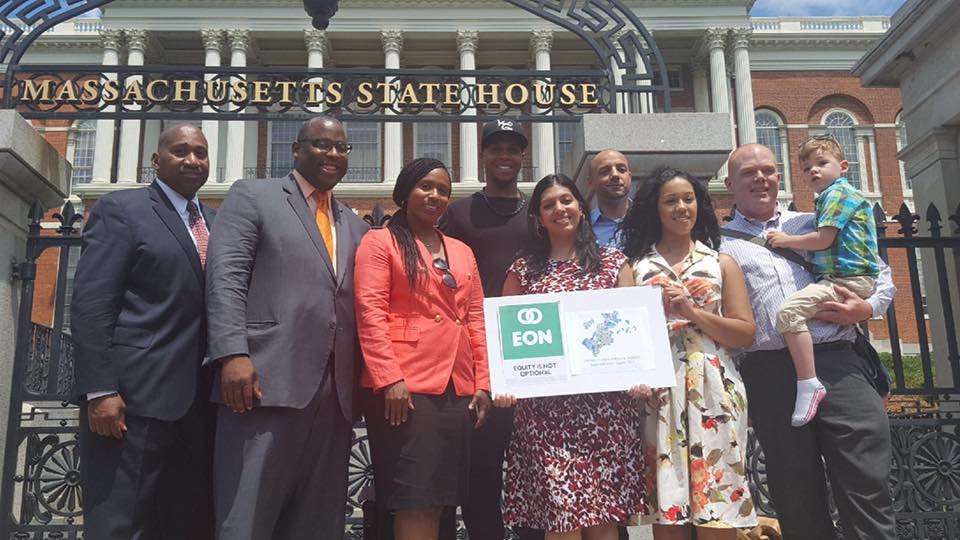 I’m turning 40 this week. I realized recently it’s been more than a decade since people first started calling me an OG in the movement to legalize cannabis. Some of my mentors have left us, and my mentees now all have mentees of their own. My child will never see the prohibition era that I grew up in and worked to end.
I’m turning 40 this week. I realized recently it’s been more than a decade since people first started calling me an OG in the movement to legalize cannabis. Some of my mentors have left us, and my mentees now all have mentees of their own. My child will never see the prohibition era that I grew up in and worked to end.
It seems to me it’s time to pass the baton to the next generation of cannabis leaders. And as I enter that phase, I have a request: Please have higher standards.
The next chapter of cannabis is being written right now, and we all have a role to play in building the system we want to see. Each of us has some amount of power, and it adds up when we use it collectively.
One way to raise your standards is through the company you keep. Whom are you supporting with your time, resources, and reputation? If you’re part of the legal industry, ask questions before you decide where to work or which clients to take on. If you’re partnering with a company or asked to speak at an event, do research before lending them your credibility. The same goes for when you’re seeking sponsors or donors for your own organization.
 Even if your only role in the cannabis industry is as a consumer, you can make a difference. Buying power is meaningful. Find out more about the companies making and selling cannabis products before choosing to spend your money with them. Support the types of businesses that you want to see succeed. My organization, Parabola Center, believes in maximizing legalization’s benefit to communities and consumers—not big corporations. We have four simple, concrete questions that we encourage everyone to ask of a company or organization before you get involved with them:
Even if your only role in the cannabis industry is as a consumer, you can make a difference. Buying power is meaningful. Find out more about the companies making and selling cannabis products before choosing to spend your money with them. Support the types of businesses that you want to see succeed. My organization, Parabola Center, believes in maximizing legalization’s benefit to communities and consumers—not big corporations. We have four simple, concrete questions that we encourage everyone to ask of a company or organization before you get involved with them:
- Have they ever filed a lawsuit to undermine social equity efforts? (Companies who do this are showing you that their true values are profits over justice.)
- Have they ever opposed the right to grow cannabis at home? (This is a clear and effective way to find out if someone is hoping to corner the market and shut out everyone else.)
- Have they called for criminal crackdowns on the unregulated market? (Demanding continued arrest and incarceration is a drug war tactic that dehumanizes people to protect profits.)
- Do their funders or members include Big Tobacco, Big Alcohol or Big Pharma corporations? (The Coalition for Cannabis Policy, Education, and Regulation, or CPEAR, for example, represents Big Tobacco but portrays itself as an innocuous policy group.)
Everyone’s situation is different, and these might not be exactly the four questions for you. But when you start by learning about the entities you do business with, you’re in a better position to use your influence in an informed, intentional way.
As activists, we need to set a higher bar than we did even a decade ago, when elected officials and corporations were rightfully celebrated as pioneers for simply supporting legalization. Those days have long passed, and we need to raise our standards accordingly.
We’re now in an era where seemingly every brand, from Grubhub to Nasdaq to Amazon Prime Video, has social media posts queued up for 4/20. A corporation supporting cannabis legalization used to be righteous, brave, or even cool. Now it’s a rationally self-interested move, a gimmick instead of a conviction.
Ask yourself what your specific vision for legalization is. Then figure out whom you can partner with to get closer to that vision. When you ask questions before you work with someone or patronize their business, you’re acting as a conscious, intentional individual. When many of us do it together, we become intentional as a community.
When prohibition ends, something will replace it. If we want to see a market that supports a wide variety of farmers and small businesses, one that prioritizes the Black and brown communities impacted by the drug war, we aren’t going to get there by chance. We have to bring that market into being.
I was trained by some of the greatest activists in our movement about how to squeeze every bit of positive impact from the opportunities I had. If I didn’t start developing that skill when I was younger, I might still be complaining now that I don’t have enough power or resources. Yes, the deck is stacked against us sometimes, but everyone has power and can use it. Each of us can also work to use it better.
When our standards are too low, we enable bad behavior. That’s already causing harm today as more cannabis companies exploit workers and take shortcuts with their products. It could have far more disastrous consequences in the future.
Let me be clearer: If you enable and normalize every self-interested corporation that supports legalization, regardless of their past conduct and current conduct, I assure you you’ll regret it. They will control who gets to grow, sell, and use the cannabis plant, and that will have painful implications for all patients and consumers. I hear complaints nationally that products at big stores are low-quality and prices are too high, especially for patients. Do you think that would get better or worse if three Wall Street backed companies were allowed to control the market?
As someone who’s been around for a while, I take the long view. Better than ever, I understand the role we’ve played so far and the chances we still have to shape the future. We will be credited—or blamed—with making the choices that determine America’s post-prohibition era.
So take a moment and look before you leap. It’s an exciting time, yes, and you might feel an urgency to jump at every opportunity. But think about how you’ll feel about your decisions when you look back on them down the road. People and opportunities will come and go, but once you give up your principles, you can’t get them back. Protect your principles and credibility and you might inspire others to do the same to them.

